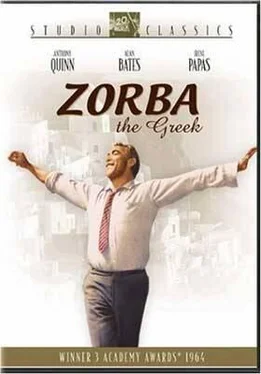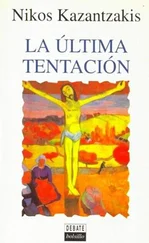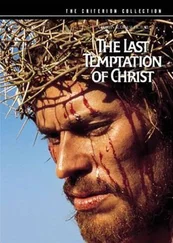Nikos Kazantzakis - Zorba The Greek
Здесь есть возможность читать онлайн «Nikos Kazantzakis - Zorba The Greek» весь текст электронной книги совершенно бесплатно (целиком полную версию без сокращений). В некоторых случаях можно слушать аудио, скачать через торрент в формате fb2 и присутствует краткое содержание. Жанр: Современная проза, на английском языке. Описание произведения, (предисловие) а так же отзывы посетителей доступны на портале библиотеки ЛибКат.
- Название:Zorba The Greek
- Автор:
- Жанр:
- Год:неизвестен
- ISBN:нет данных
- Рейтинг книги:3 / 5. Голосов: 1
-
Избранное:Добавить в избранное
- Отзывы:
-
Ваша оценка:
- 60
- 1
- 2
- 3
- 4
- 5
Zorba The Greek: краткое содержание, описание и аннотация
Предлагаем к чтению аннотацию, описание, краткое содержание или предисловие (зависит от того, что написал сам автор книги «Zorba The Greek»). Если вы не нашли необходимую информацию о книге — напишите в комментариях, мы постараемся отыскать её.
Zorba The Greek — читать онлайн бесплатно полную книгу (весь текст) целиком
Ниже представлен текст книги, разбитый по страницам. Система сохранения места последней прочитанной страницы, позволяет с удобством читать онлайн бесплатно книгу «Zorba The Greek», без необходимости каждый раз заново искать на чём Вы остановились. Поставьте закладку, и сможете в любой момент перейти на страницу, на которой закончили чтение.
Интервал:
Закладка:
"Would you believe it, boss! That day was the first time I knew what a woman was. Two tears sprang into my grandma's eyes. She curled up like a dog, and her chin trembled. 'Krystallo!' I shouted, going nearer so as she'd hear better. 'Krystallo!' Young people are cruel beasts, they're inhuman, they don't understand. My grandma raised her skinny arms to heaven. 'Curse you from the bottom of my heart!' she cried. That very day she started to go into a decline. She wasted away and two months later, her days were numbered. Then when she was at her last gasp she saw me. She hissed like a turtle and tried to grab me with her withered fingers. 'It was you who finished me off. May you be damned, Alexis, and suffer all I have!'"
Zorba smiled.
"Ah, the old witch's curse has hit home!" he said, stroking his moustache. "I'm in my sixty-fifth year, I think, but even if I live to be a hundred I'll never lay off. I'll still have a little mirror in my pocket, and I'll still be running after the female of the species."
He smiled once more, threw his cigarette through the fanlight, stretched his arms and said:
"I've plenty of other faults, but that is the one that'll kill me."
He leapt from his bed.
"Enough of all that. Cut the cackle. Today we work!"
He dressed in a twinkling, put on his shoes and went out.
With my head bowed, I ruminated on Zorba's words, and suddenly a distant snow-bound town came to my mind. I was at an exhibítion of Rodin's works, and I had stopped to look at an enormous bronze hand, "The Hand of God." This hand was half closed, and in the palm an ecstatic man and woman were embracing and struggling.
A girl came up and stopped beside me. She also looked and was moved at the disquieting, eternal embrace of man and woman. She was slim, well-dressed; she had a wealth of fair hair, a powerful chin and thin lips. There was something determined and virile about her. I normally hate inviting a conversation, and I do not know what urged me to turn to her and ask:
"What are you thinking about?"
"If only we could escape!" she murmured resentfully.
"And go where? The hand of God is everywhere. There is no salvation. Are you sorry'?"
"No. Love may be the most intense joy on earth. It may be. But, now I see that bronze hand, I want to escape."
"You prefer freedom."
"Yes."
"But, supposing it's only when we obey that bronze hand we are free? Supposing the word 'God' didn't have that convenient meaning the masses give it?"
She looked anxiously at me. Her eyes were of a metallic grey, her lips dry and bitter.
"I don't understand," she said, and moved away.
She disappeared. Since then I had never thought any more of her. Nevertheless, she must have continued to live deep down in my heart, and today, on this empty coast, she reappeared, pale and plaintive, from the depths of my being.
Yes, I had behaved badly. Zorba was right. That bronze hand was a good pretext. The first contact had succeeded, the first gentle words had been exchanged, and we might gradually, imperceptibly, have embraced and been united, undisturbed in the hand of God. But I had suddenly darted from earth to heaven, and the woman had been startled and had fled.
The old cock was crowing in Dame Hortense's yard. The white light of day was now peeping in through the little window. I leapt out of bed.
The workmen had begun to arrive with tbeir pickaxes, their crowbars and their mattocks. I heard Zorba giving his orders. He had thrown himself into the work straight away. One felt he was a man who knew how to command men, who loved responsibility.
I put my head out of the fanlight and saw him standing, like a great gawk in the middle of the thirty-odd lean, narrow-waisted, rough and weather-beaten men. His arm was stretched out authoritatively, his words were brief and to the point. Once he caught hold of a youngish fellow by the scruff of the neck because he was muttering and coming forward hesitatingly.
"Got something to say, have you?" Zorba cried. "Well, say it out aloud! I don't like mumblings. You've got to be in the mood to work. If you're not, get back to the tavern!"
At that moment Dame Hortense appeared with tousled hair and swollen cheeks. She was not made up, and she was dressed in a full, dirty gown and was shuffling along in a pair of long, down-at-heel slippers. She coughed the raucous cough of old singers, like a donkey's braying. She stopped and looked with pride at Zorba. Her eyes became misty. She coughed again, so that he would notice her, and passed close to him, swaying and wriggling her hips. Her broad sleeve almost brushed him. But he did not even turn round to look at her. He took a piece of barley cake and a handful of olives from a workman and shouted:
"Now, men, in God's name, make the sign of the cross!" And, striding away, he led the gang in a beeline towards the mountain.
I shall not describe here the work on the mine. It would need patience to do that, and I have none. Near the sea, we built a hut out of bamboo, osier and petrol-cans. Zorba used to awake at dawn, seize his pick, go to the mine before the men, open a gallery, abandon it, find a gleaming lignite seam and dance for joy. But after a few days he would lose the seam and he would fling himself down on the ground with his legs in the air and, with his feet and hands, make a mocking gesture at the sky.
He had taken to the work. He no longer even consulted me. From the very first days all the care and responsibility had passed from my hands to his. His job was to make decísions and put them into execution. Mine was to pay the piper. This arrangement, moreover, suited me fairly well. For I sensed that these months would be the happiest in my life. Also, everything considered, I felt I was buying my happiness cheaply.
My maternal grandfather, who had lived in a fair-sized Cretan village, used to take his lantern every evening and go round the streets to see if, by chance, any stranger had arrived. He would take him to his house and give him an abundance of food and drink, after which he would sit on his divan, light his long Turkish pipe, his chibouk, and turn to his guest-for whom the time had come to repay the hospitality-and say in a peremptory tone:
"Talk!"
"Talk about what, Father Moustoyorgi?"
"What you are, who you are, where you come from, what towns and villages you have seen-everything, tell me everything. Now, speak!"
And the guest would begin to talk at random, uttering truths and falsehoods, whilst my grandfather, sitting calmly on his divan, smoked his chibouk, listening intently and following the stranger in his travels. And if he liked the guest, he would say:
"You shall stay tomorrow too. You're not going. You've still things to tell."
My grandfather had never left his village. He had never been even to Candia or Canea. "Why go there'?" he would say. "There are Candians and Caneans, peace be with them, who pass here- Candia and Canea come to me, so why need I go to them?"
On this Cretan coast today I am perpetuating my grandfather's mania. I have also found a guest by the light of my lantern. I do not let him depart. He costs me far more than a dinner, but he is worth it. Every evening I wait for him after work, I make him sit opposite me and we eat. The time comes when he must pay, and I say to him: "Talk!" I smoke my pipe and I listen. This guest has thoroughly explored the earth and the human soul. I never tire of listening to him.
"Talk, Zorba, talk!"
When he speaks, the whole of Macedonia is immediately spread before my gaze, laid out in the little space between Zorba and myself, with its mountains, its forests, its torrents, its comitadjis, its hard-working women and great, heavily-built men. And also Mount Athos with its twenty-one monasteries, its arsenals and its broad-bottomed idlers. Zorba would shake his head as he finished his tales of monks and say, roaring with laughter: "God preserve you, boss, from the stern of mules and the stem of monks!"
Читать дальшеИнтервал:
Закладка:
Похожие книги на «Zorba The Greek»
Представляем Вашему вниманию похожие книги на «Zorba The Greek» списком для выбора. Мы отобрали схожую по названию и смыслу литературу в надежде предоставить читателям больше вариантов отыскать новые, интересные, ещё непрочитанные произведения.
Обсуждение, отзывы о книге «Zorba The Greek» и просто собственные мнения читателей. Оставьте ваши комментарии, напишите, что Вы думаете о произведении, его смысле или главных героях. Укажите что конкретно понравилось, а что нет, и почему Вы так считаете.












